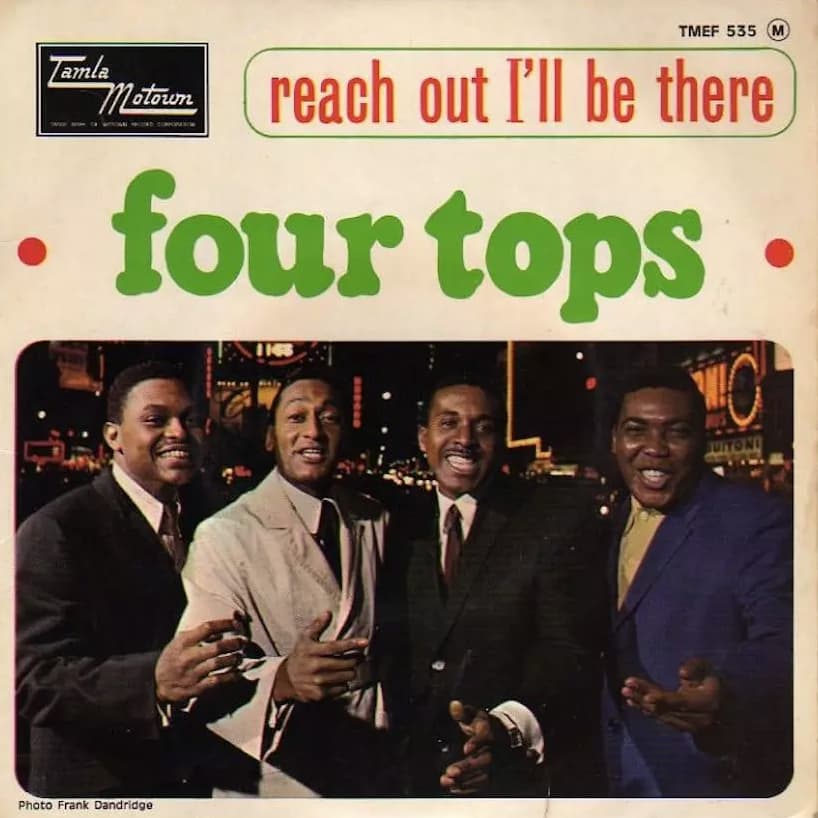
“Reach Out I’ll Be There”: A Monumental Hit that Defined the Four Tops and Motown’s Legacy
When you reflect on the golden era of Motown, certain tracks immediately stand out not just for their melody, but for their profound impact on the music industry and popular culture. One such track is “Reach Out I’ll Be There,” a song that not only captured the essence of the 1960s soul but also cemented the Four Tops as Motown royalty. This track, released from their fourth studio album in 1967, stands as a towering achievement in the group’s career and in the annals of Motown’s storied history.
Crafted by the legendary songwriting trio Holland–Dozier–Holland, the song is a powerful showcase of Motown’s ability to blend pop sensibilities with deep, soulful emotion. Upon its release, “Reach Out I’ll Be There” soared to the top of the charts, claiming the number one spot on the Billboard Hot 100 for two consecutive weeks in October 1966 and dominating the UK Singles Chart shortly after. It was a similar story on the Rhythm & Blues chart, where it also peaked at number one, underscoring its appeal across different audiences and its resonance within the African American community.
The track’s immediate success was a testament to its innovative sound and emotional depth. The song begins with a distinctive and dramatic instrumental introduction, setting a somber tone that is brilliantly juxtaposed with the uplifting message of the lyrics. Lead vocalist Levi Stubbs delivers each line with a raw intensity that blurs the line between singing and shouting, a vocal style that became a signature of Stubbs’ performances and a hallmark of the song’s enduring appeal.
The production of “Reach Out I’ll Be There” was a meticulous process, with the song’s arranger, Paul Riser, adding unique touches like the use of piccolo and flute in the intro, and a special drum pattern created by using timpani mallets on a tambourine head. These elements contributed to the song’s distinctive sound, which was unlike anything else on the radio at the time.
Despite initial reservations from the group about the song’s potential success, Berry Gordy, Motown’s founder, insisted on its release. His intuition proved correct, as the song not only topped the charts but also received critical acclaim. It was later ranked number 206 on Rolling Stone’s list of “The 500 Greatest Songs of All Time,” and in 2022, it was selected by the Library of Congress for preservation in the National Recording Registry, highlighting its cultural, historical, and aesthetic significance.
The song’s message of hope and assurance—”Just look over your shoulder; I’ll be there”—resonated deeply with listeners, offering a sense of comfort and solidarity that was particularly poignant during the turbulent 1960s. It is this blend of emotional depth, innovative production, and profound cultural impact that makes “Reach Out I’ll Be There” not just a song but a milestone in music history. As we look back on the legacy of the Four Tops and Motown, this track stands as a testament to the enduring power of soul music to speak to, and indeed reach out to, the human spirit.